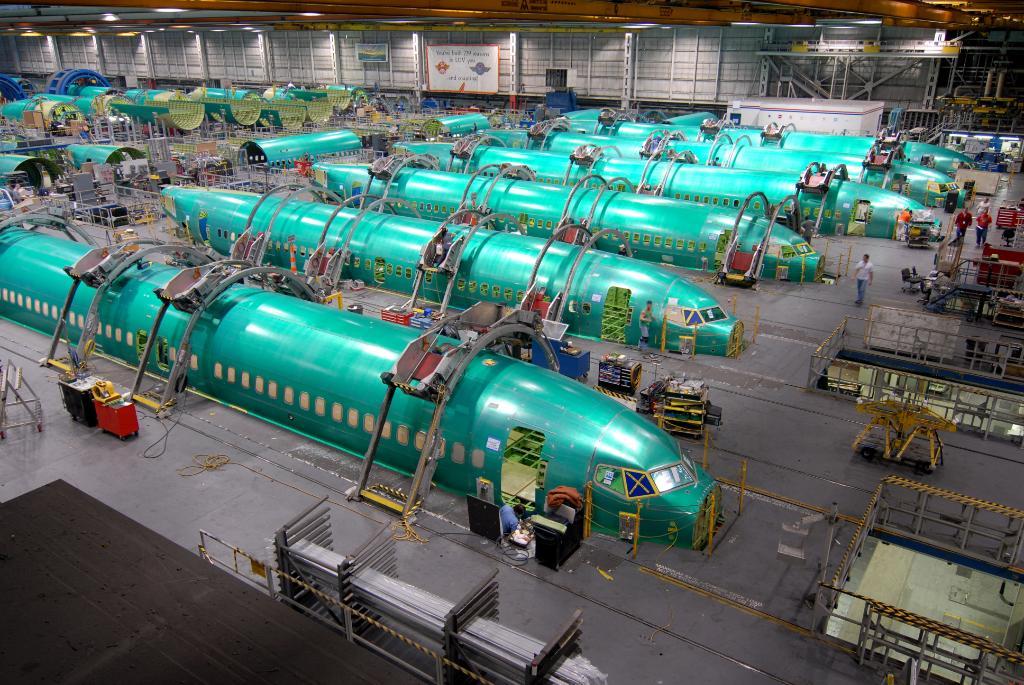
Spirit AeroSystems—the primary supplier to Boeing including for much of the 737 MAX and which does substantial defense industry work—warned Wall Street on April 14 it will record a roughly $160 million loss for the recently ended first quarter of 2020, as well as a pretax loss of around $102 million.
Those results would compare against a $163 million gain and $289 million in earnings for the first quarter of 2019. The current quarter’s results would be even bleaker, Spirit said.
With Boeing—responsible for about three-quarters of Spirit’s annual revenue—recently suspending much of its own work on commercial aircraft production to try to deep clean amid the novel coronavirus outbreak, Wichita-based Spirit announced April 8 it had also practically halted production for Boeing programs performed at its headquarters and in Oklahoma indefinitely. In January, Boeing stopped production of the MAX as it wrestles with the aircraft’s return to service.
Earlier this week, Airbus—Spirit’s second-largest customer with 15% of revenue—cut its narrowbody and widebody production rates by a third each in the wake of air travel’s collapse following COVID-19. Boeing is expected to announce potentially deeper revisions to its production schedules any day now.
“If OEM production rates decline in the future, Spirit will evaluate further cost reduction actions, including additional workforce actions,” Spirit said in an April 14 regulatory filing. “The COVID-19 pandemic has had and is expected to continue to have a material negative impact on our industry and business.”
Also in the filing, Spirit detailed shipset sales for the year-over-year quarters. For purposes of measuring shipset deliveries for Boeing aircraft, “shipset” refers to sets of structural fuselage components produced or delivered for one aircraft in such a period. For Airbus and business and regional jets, shipset refers to all structural aircraft components produced or delivered for one aircraft.
It recorded 324 total shipset deliveries in the latest period compared with 453 a year ago. Total Airbus deliveries rose to 237 from 224, while Boeing deliveries plummeted to 75 from 216. For the MAX, the numbers were 18 versus 152.
Spirit said it expects COVID-19 will have a much worse effect on its current second-quarter results than even the first quarter’s. “Our expectation is that our business operations will not improve until our customers are willing to produce aircraft at sufficient levels, which is dependent upon consumers’ willingness to use aircraft travel and sufficient OEM orders (without suspension) from airlines and the financial wherewithal of airlines specifically and generally,” Spirit said. “This may not occur until well after the broader global economy begins to improve.”
As part of the filing, Spirit also announced it is offering $1 billion of senior secured second lien notes due 2025 in a private offering to raise funds.
In turn, S&P Global Ratings and Moody’s Investors Service cut its debt ranking for Spirit to indicate more speculative characteristics for investors. The credit rating agencies said they do not expect air traffic to recover to pre-coronavirus levels until 2022.
Spirit’s defense involvement includes work on Boeing’s P-8, C-40 and KC-46 tanker, which are all commercial aircraft modified for military use. Spirit also takes part in the development of the Sikorsky CH-53K, Bell Helicopter V-280 Valor tiltrotor and Northrop Grumman B-21.





